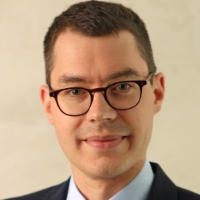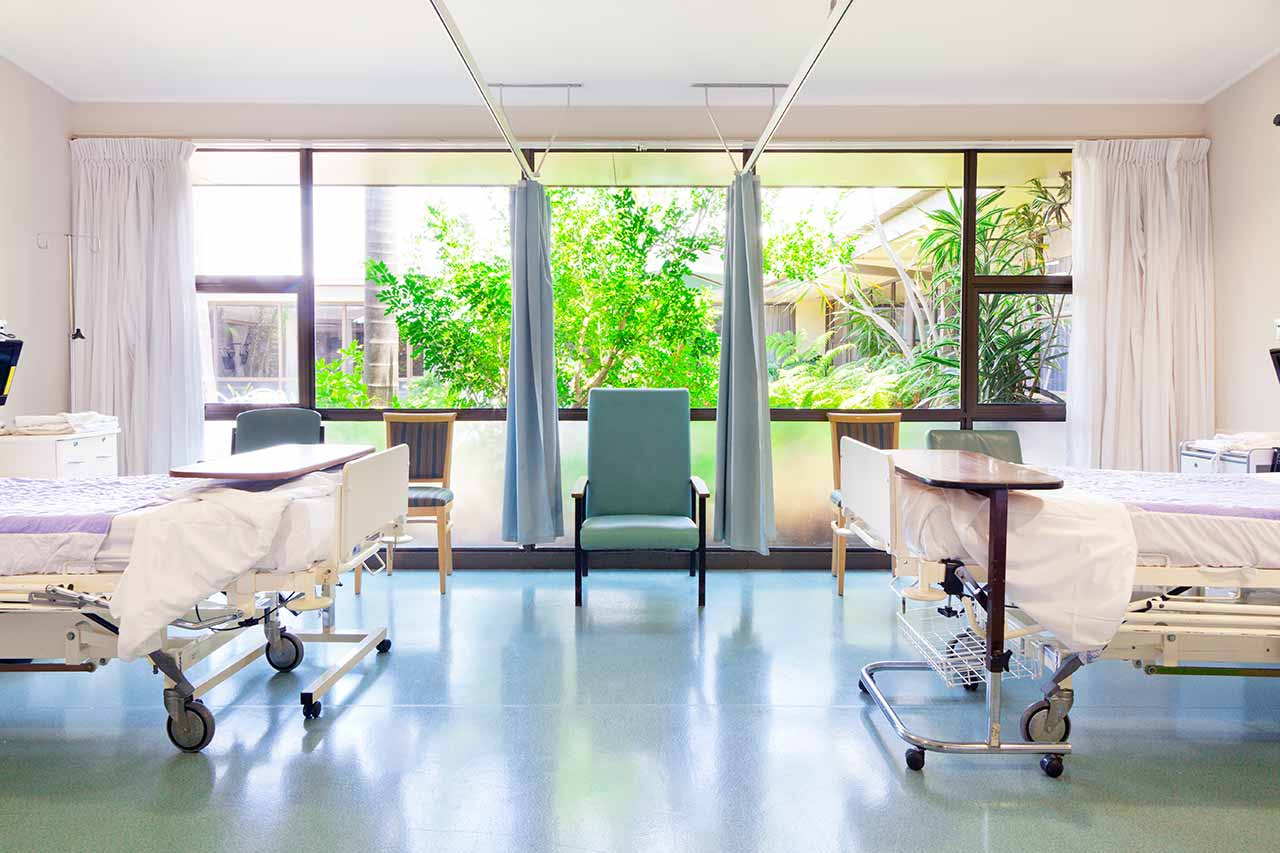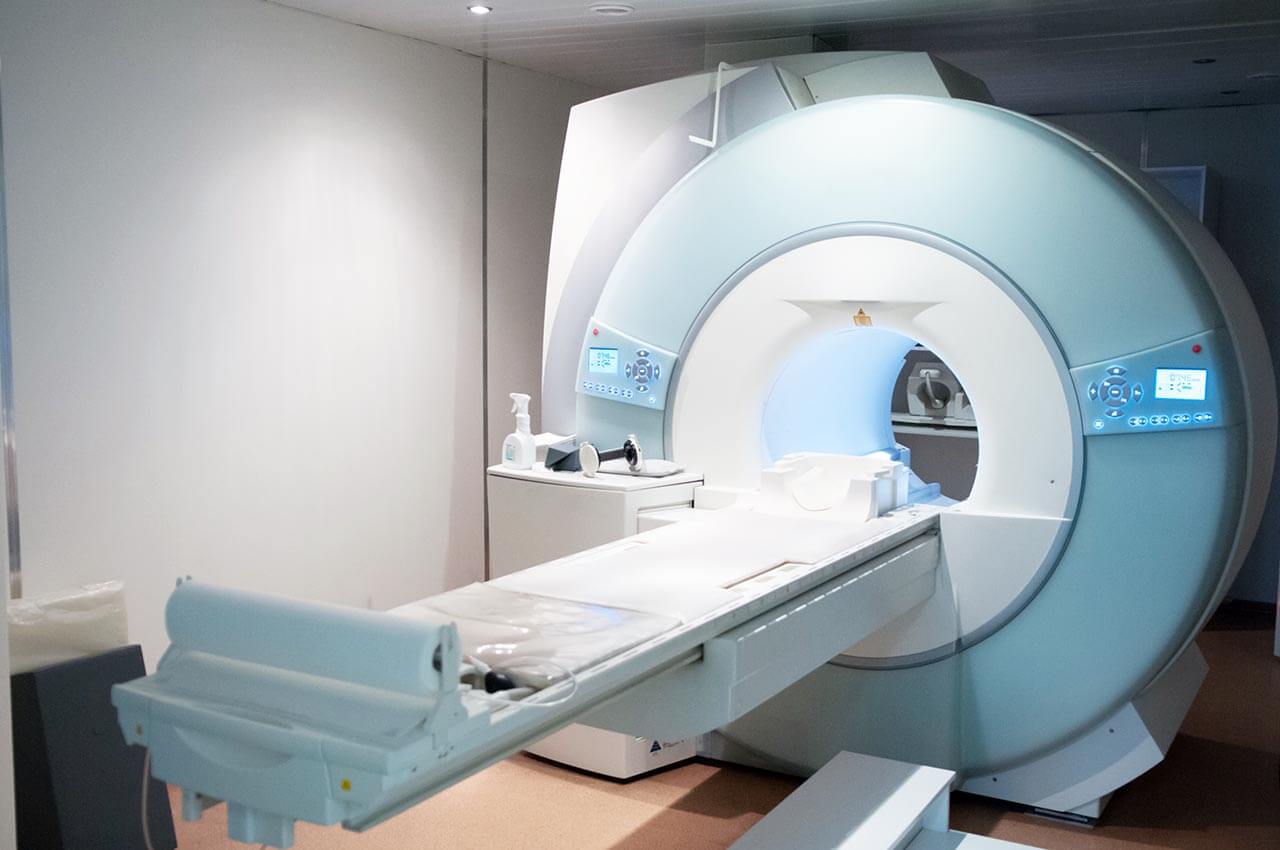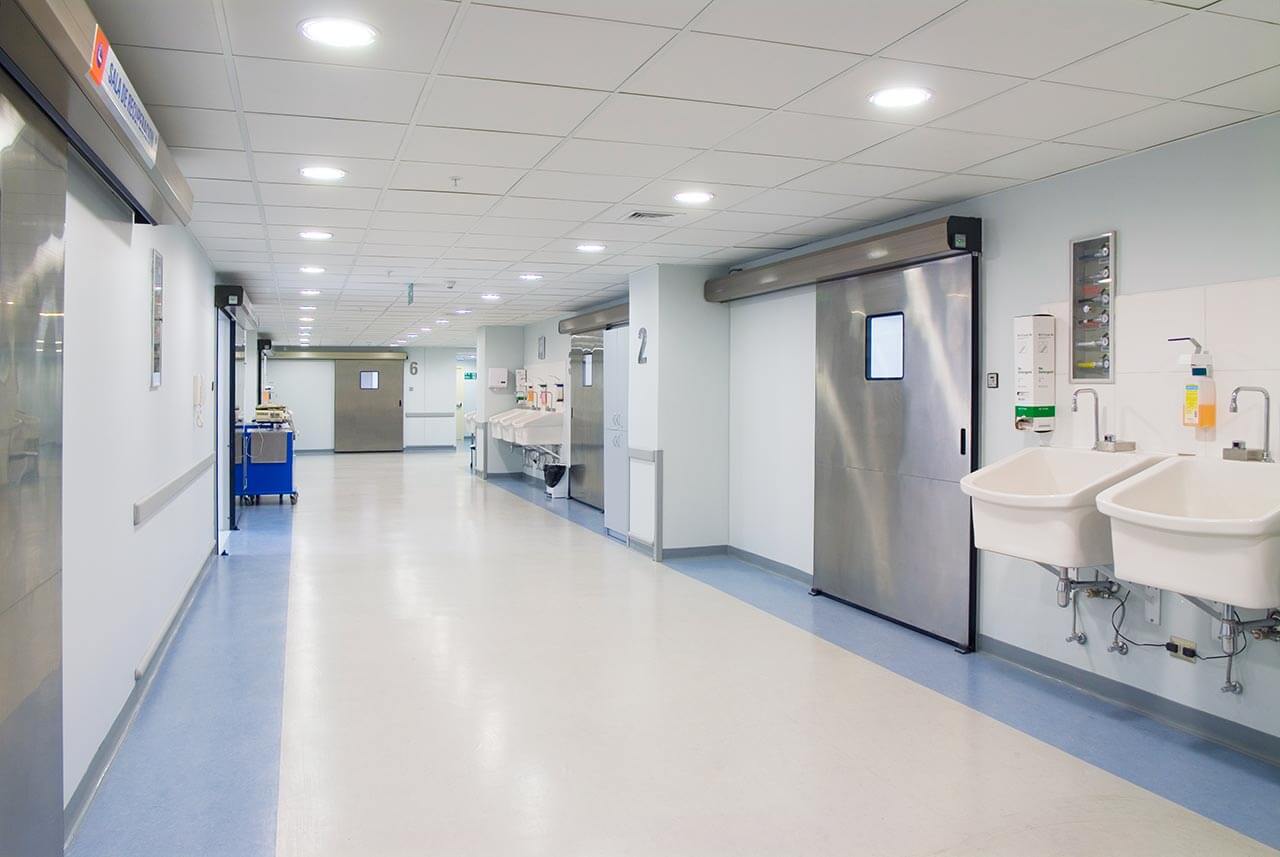
About the Department of Radiation Therapy at University Hospital Saarland Homburg
The Department of Radiation Therapy at the University Hospital Saarland Homburg provides patients with the full range of services in this medical field. The primary focus of the department's clinical practice is the conduction of modern types of radiation therapy for treating malignant diseases. The department's specialists also successfully carry out combination treatments, such as radioimmunotherapy and chemoradiotherapy. The department is part of the Cancer Center at the University Hospital Saarland Homburg, which allows radiation therapists to cooperate closely with oncologists, surgeons, and other specialists, providing comprehensive cancer treatment. The department's team of doctors also treats patients with some benign inflammatory diseases. The department's patients most often receive outpatient medical care. There are 24 beds available to accommodate patients in the department. The pride of the department is the advanced technical equipment that allows the specialists to perform high-precision and efficient irradiation. The treatment takes place in a modern building, in the design of which great importance was attached to creating a comfortable environment for the patient. The department admits more than 1,500 patients who receive high-quality European-level treatment every year. The Head Physician of the department is Prof. Dr. med. Markus Hecht.
The department has a highly professional team of doctors, consisting of 19 doctors, 10 medical physicists, and 19 medical technical assistants. All specialists have in-depth knowledge and vast clinical experience in radiation therapy, so each patient receives an individually developed radiation therapy regimen. Doctors strictly meet radiation protection standards. In addition, innovative equipment makes it possible to target the maximum dose of radiation to the pathological focus with virtually no damage to healthy adjacent tissues and anatomical structures.
The department's radiation therapists have at their disposal state-of-the-art medical equipment purchased in 2021 and 2022. It includes Halcyon, Artiste, and TrueBeam linear accelerators, as well as SOMATOM go.Open Pro CT scanner, Elekta Flexitron Afterloader system for brachytherapy, combined CT scanner with Identify linear accelerator for patient positioning, etc.
The department widely uses such modern types of radiation therapy as intensity-modulated radiation therapy (IMRT) and volumetric modulated arc therapy (VMAT). Both irradiation methods allow focusing the maximum dose of radiation on the tumor and, at the same time, the harm from radiation to healthy tissues is minimal. These types of radiation therapy are external and are most often prescribed to patients with head and neck tumors, breast cancer, lung cancer, brain, and spinal cord cancers.
Image-guided radiation therapy (IGRT) is also quite in demand in the department. This type of radiation therapy involves accurate and safe CT-guided delivery of radiation to the tumor focus. Since the tumor may move between radiation sessions (for example, due to bowel or bladder filling) or shift during respiration, image-guided radiation therapy ensures accurate localization of the malignant tumor immediately before the procedure.
The department successfully performs stereotactic radiation therapy, which is often also called radiosurgery. This type of radiation is external and is usually used to treat tumors located in hard-to-reach places, for example, in the head and neck, in the brain, as well as in internal organs (the pancreas, kidneys, lungs, etc.). A feature of stereotactic radiation therapy is the ability to simultaneously deliver very high doses of radiation to a malignant tumor. As a result, already in 1-5 sessions, the department's doctors achieve a good therapeutic result.
The department's range of services includes brachytherapy (internal radiation therapy). The essence of this treatment method is to place a radiation source directly into the tumor, due to which the effective destruction of cancer cells occurs. The main advantages of brachytherapy compared to external beam radiation therapy include minimal damage to adjacent healthy tissue, high radiation efficiency, and a shorter treatment period. In 2022, the department purchased advanced brachytherapy equipment: Elekta Flexitron and Oncentra brachytherapy planning software, imaging systems (ultrasound, CT, and X-ray devices) and a special table. The department's specialists have vast experience in interstitial, superficial, intraluminal, and intracavitary brachytherapy for treating cervical, endometrial, and vulvar cancer, breast cancer, malignant tumors of the skin, esophagus, head and neck neoplasms, etc.
The department's team of doctors also specializes in radiation therapy for treating benign diseases of bones, joints, tendons, and ligaments. Radiation therapy is often used for heel spurs, Achilles tendinitis, "tennis elbow" and "golfer's elbow", inflammatory and degenerative changes in the shoulder joint, inflammatory processes in the hip joint, and Dupuytren's contracture. Low-dose radiation therapy is usually used for benign pathologies. As a rule, the course of treatment lasts about three weeks, during which a patient undergoes two sessions of radiation therapy weekly.
The department specializes in the following types of radiation therapy:
- Intensity-modulated radiation therapy (IMRT)
- Volumetric modulated arc therapy (VMAT)
- Image-guided radiation therapy (IGRT)
- Stereotactic radiation therapy (radiosurgery)
- Total body irradiation
- Brachytherapy
- Surface brachytherapy
- Intracavitary and intraluminal brachytherapy
- Interstitial brachytherapy
- Radiation therapy for benign diseases of the bones, joints, tendons, and ligaments
- Other types of radiation therapy
Curriculum vitae
On October 1, 2022, Prof. Dr. med. Markus Hecht headed the Department of Radiation Therapy at the University Hospital Saarland Homburg. Prior to this, the specialist held the position of Senior Physician in the Department of Radiation Therapy at the University Hospital Erlangen.
Prof. Markus Hecht studied human medicine at the University of Erlangen-Nuremberg. During his studies at the university, he received a scholarship from the German Academic Scholarship Foundation, which was followed by doctoral training in the Department of Radiation Therapy at the University Hospital Erlangen.
During the work on his thesis and habilitation, Dr. Hecht researched drugs with the potential for radiation sensitivity, which can influence the biological effectiveness of radiation therapy. His translational and clinical research was awarded by the Prize from the German Society of Radiation Oncology (DEGRO) and Dr. Hermann Holthausen Prize.
During his work at the University Hospital Erlangen, Dr. med. Markus Hecht headed the Research Center in the Department of Radiation Therapy. The main focus of the specialist's research activities is clinical trials in radiation therapy combined with immunotherapy. When using such combination treatment methods, the immunomodulatory effects of radiation therapy are enhanced, increasing the chances of recovery from oncological diseases.
Photo of the doctor: (c) Universitätsklinikum des Saarlandes





